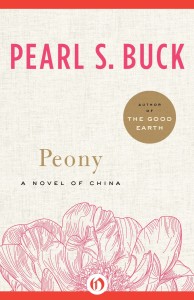Tag : China
July 9, 2019 by admin
The Disappeared Jews of Harbin, China •
In the 1890s, the Trans-Siberian Railway turned a small fishing village in northeastern China into a thriving city, shaped by the interaction of Jews, Russians, Chinese and others. But by the early 1960s the last Jewish families had left Harbin, and its once-flourishing Jewish life of synagogues, schools, a hospital and more as they immigrated to the United States, Israel and elsewhere. Despite the anti-Semitism that led to this exile, many descendants have warm nostalgic feelings, typified by Irene Clurman who has created a compendium of images and stories at kehilalinks.jewishgen.org/harbin.
A recent appreciation for “roots” tourism has spurred the restoration and commemoration of the Jewish history of Harbin, also renowned for its spectacular ice sculptures. Now the Lower East Side Eldridge Street synagogue is hosting an exhibition documenting Harbin’s Jewish past in historic photographs and personal stories. The show was spurred by—and is also showing small works by—New York artist Steven Lane who has been making art in Harbin since 1985, often using the former synagogue, which now serves as a museum and temporary studio space. Through October 4. eldridgestreet.org/harbinchina
- No Comments
October 30, 2018 by Kathryn Ruth Bloom
Rediscovering “Peony,” a Novel About Jews in China
 Writer Pearl Buck came by her in-depth knowledge of China from first-hand experience. Born in the United States, she was brought to China as an infant by her Protestant missionary parents. The author of more than 40 novels and numerous short stories and works of non-fiction, Buck is best-remembered for her Pulitzer Prize-winning novel The Good Earth (1931), a moving portrayal of the struggles of a Chinese family. She received the Nobel Prize for Literature in 1938.
Writer Pearl Buck came by her in-depth knowledge of China from first-hand experience. Born in the United States, she was brought to China as an infant by her Protestant missionary parents. The author of more than 40 novels and numerous short stories and works of non-fiction, Buck is best-remembered for her Pulitzer Prize-winning novel The Good Earth (1931), a moving portrayal of the struggles of a Chinese family. She received the Nobel Prize for Literature in 1938.
Less known is the fact that Buck wrote fiction about Jews in China, too. Because I’m always interested in narratives about Jewish life in other times and places, I approached her 1948 novel Peony with particular interest. At the time of publication, Peony was hailed as an insightful study of the decline of a small Jewish community in Kaifeng, China, in the mid-1800s. But although Buck’s historical facts may be accurate—and the dangers of communal disappearance through assimilation resonate in our own time—I was struck by her reliance on ethnic stereotypes. What I found was an ambiguous underlying attitude toward Jews and Judaism. What is disturbing about it is the vague sense of pleasure in the disappearance of Jewish life that forms an unstated subtext to her narrative.
- 1 Comment
 Please wait...
Please wait...